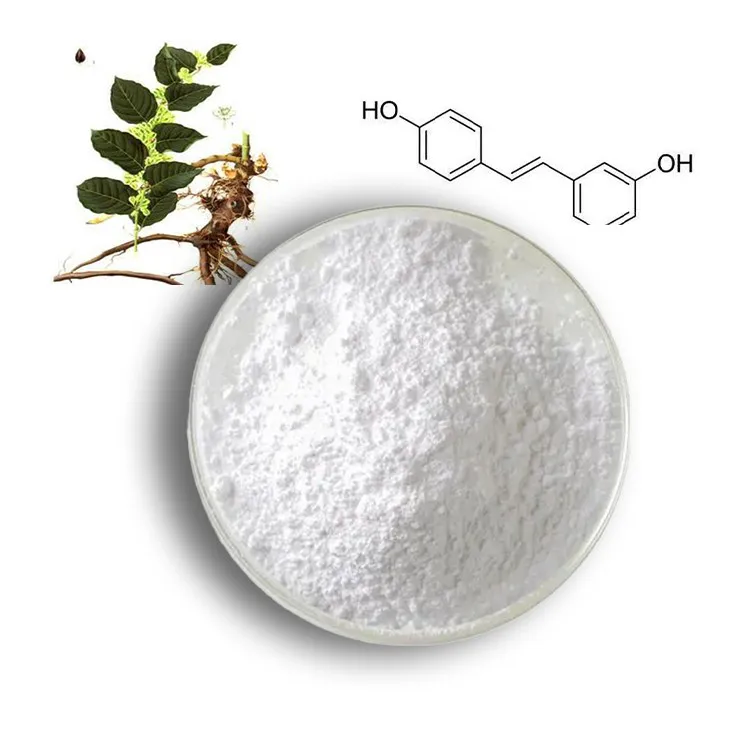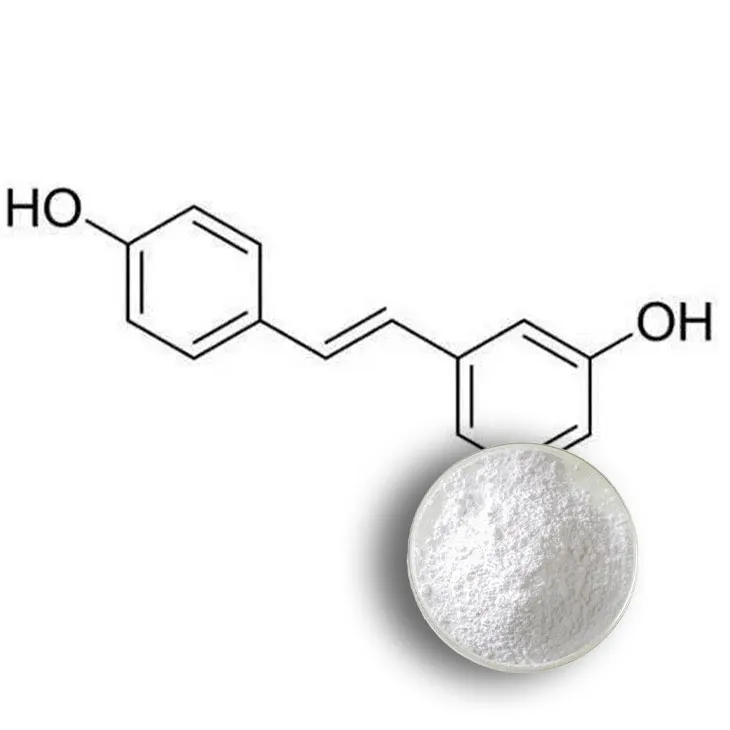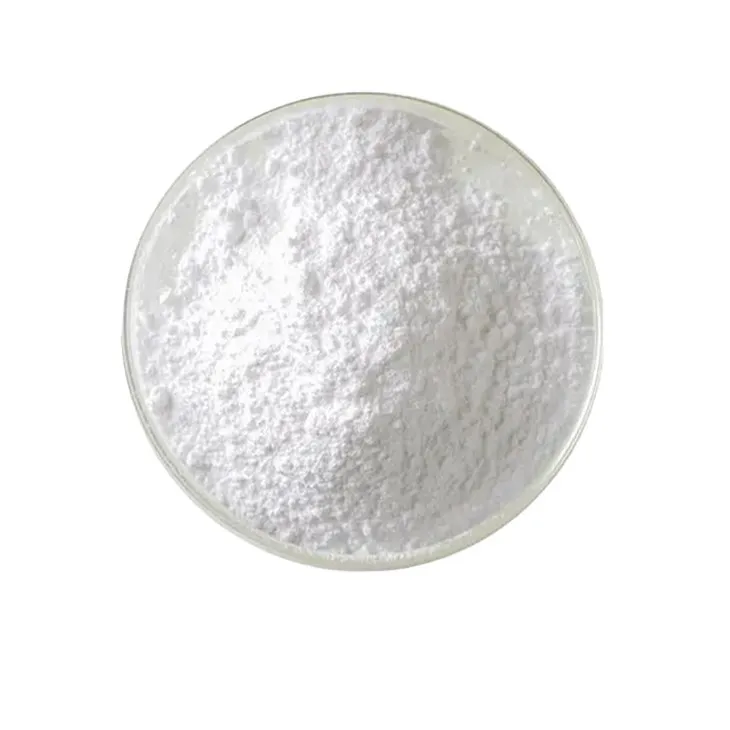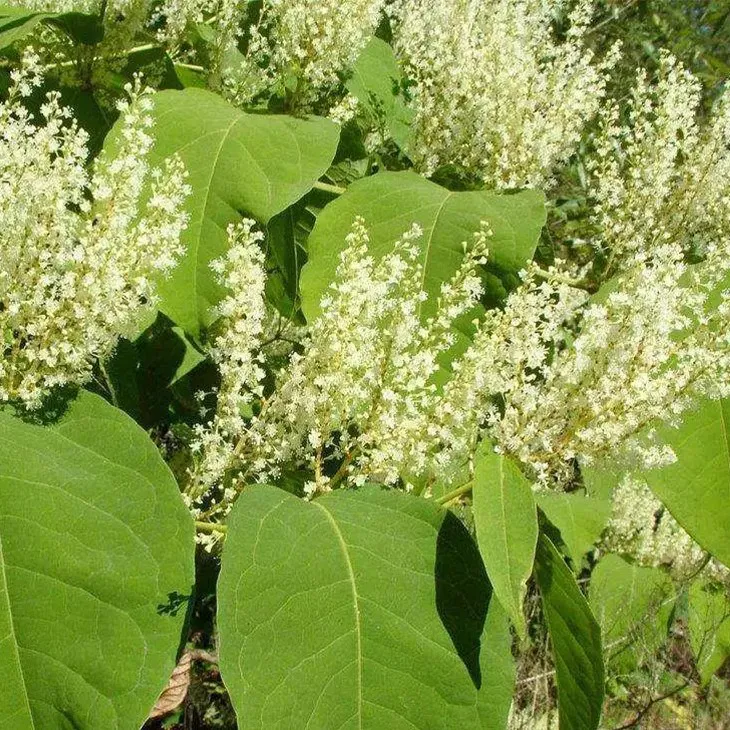- 0086-571-85302990
- sales@greenskybio.com
Resveratrol extract can reduce hypertension.
2024-11-13

1. Introduction
Hypertension, also known as high blood pressure, is a major global health concern. It significantly increases the risk of cardiovascular diseases such as heart attacks, strokes, and heart failure. White Resveratrol extract, a natural compound with a wide range of biological activities, has emerged as a potential agent for reducing hypertension. Resveratrol is found in various plants, especially in grapes and red wine. Understanding how white Resveratrol extract can affect hypertension is of great importance for the development of new preventive and therapeutic strategies.

2. The Mechanisms of Resveratrol in Reducing Hypertension
2.1 Modulating the Renin - Angiotensin - Aldosterone System (RAAS)
The RAAS plays a crucial role in blood pressure regulation. Renin is an enzyme that catalyzes the conversion of angiotensinogen to angiotensin I, which is then converted to angiotensin II by angiotensin - converting enzyme (ACE). Angiotensin II is a potent vasoconstrictor and also stimulates the release of aldosterone, which promotes sodium and water retention. Resveratrol has been shown to interfere with this system. It can inhibit the activity of ACE, thereby reducing the production of angiotensin II. This leads to decreased vasoconstriction and a reduction in blood pressure. Additionally, resveratrol may also affect the expression of genes related to the RAAS, further modulating its function.
2.2 Reducing Oxidative Stress in Blood Vessels
Oxidative stress occurs when there is an imbalance between the production of reactive oxygen species (ROS) and the body's antioxidant defense mechanisms. In blood vessels, oxidative stress can damage endothelial cells, which are important for maintaining normal vascular function. High blood pressure is often associated with increased oxidative stress. Resveratrol is a powerful antioxidant. It can scavenge ROS such as superoxide anions and hydrogen peroxide. By reducing oxidative stress in blood vessels, resveratrol helps to protect endothelial cells, improve endothelial function, and promote vasodilation. This, in turn, contributes to the reduction of blood pressure.
2.3 Enhancing Vasodilation
Vasodilation is the widening of blood vessels, which leads to a decrease in blood pressure. Resveratrol can enhance vasodilation through multiple mechanisms. It can stimulate the production of nitric oxide (NO) in endothelial cells. NO is a key signaling molecule that relaxes smooth muscle cells in the blood vessel walls. Resveratrol may also act on potassium channels in vascular smooth muscle cells, causing hyperpolarization and relaxation of these cells. These effects on vasodilation are important for its role in reducing hypertension.

3. Different Dosage Forms of White Resveratrol extract
3.1 Oral Supplements
Oral resveratrol supplements are one of the most common forms. They are available in capsules, tablets, or powders. The advantage of oral supplements is their convenience. However, the bioavailability of resveratrol from oral supplements can be relatively low. This is because resveratrol undergoes extensive first - pass metabolism in the liver. To improve bioavailability, some supplements are formulated with other substances such as piperine from black pepper, which can inhibit drug - metabolizing enzymes in the gut and liver. When considering the use of oral resveratrol supplements for hypertension, it is important to determine the appropriate dosage. Different studies have used a wide range of dosages, from a few milligrams to several grams per day. The optimal dosage may depend on factors such as the severity of hypertension, the patient's age, and overall health status.
3.2 Topical Applications
Topical application of resveratrol extract has also been explored. This form may be beneficial for local effects on blood vessels in the skin or for transdermal delivery to the systemic circulation. However, the effectiveness of topical resveratrol for reducing hypertension has not been as extensively studied as oral forms. Some studies have suggested that topical resveratrol can penetrate the skin and have antioxidant and anti - inflammatory effects on the underlying blood vessels. But more research is needed to determine its role in blood pressure regulation.

4. Long - Term Effects of White Resveratrol Extract on Hypertension
Long - term studies on the effects of white resveratrol extract on hypertension are crucial for evaluating its potential as a therapeutic agent. Some short - term studies have shown promising results in reducing blood pressure. However, it is not clear whether these effects can be sustained over a long period. One concern is the potential development of tolerance to the blood - pressure - lowering effects of resveratrol. Another aspect to consider is the long - term safety of resveratrol use. Although resveratrol is generally considered safe, high - dose or long - term use may have some side effects. For example, it may interact with certain medications or affect liver function. Long - term studies should also investigate whether resveratrol can prevent the progression of hypertension - related complications such as organ damage in the heart, kidneys, and eyes.

5. Patient - Specific Responses to White Resveratrol Extract
5.1 Genetic Factors
Genetic factors can play a significant role in determining a patient's response to white resveratrol extract. Different individuals may have genetic variations in genes related to resveratrol metabolism, the target pathways involved in blood pressure regulation, or antioxidant defense mechanisms. These genetic differences can affect how resveratrol is absorbed, distributed, metabolized, and excreted in the body. For example, some individuals may have genetic polymorphisms in the cytochrome P450 enzymes, which are involved in the metabolism of resveratrol. This can lead to differences in the bioavailability and efficacy of resveratrol. Understanding these genetic factors can help in personalized medicine approaches for using resveratrol to treat hypertension.
5.2 Lifestyle and Diet
Lifestyle and diet can also influence the effectiveness of white resveratrol extract in reducing hypertension. A healthy lifestyle, including regular exercise, smoking cessation, and moderation in alcohol consumption, can enhance the beneficial effects of resveratrol. Exercise can improve cardiovascular function and increase the body's sensitivity to the blood - pressure - lowering effects of resveratrol. On the other hand, a diet high in salt, saturated fats, and refined carbohydrates can counteract the effects of resveratrol. A diet rich in fruits, vegetables, whole grains, and lean proteins is recommended in combination with resveratrol use for better blood pressure control. Additionally, some dietary components may interact with resveratrol. For example, high - fat meals can affect the absorption of resveratrol. Therefore, it is important to consider lifestyle and diet when using white resveratrol extract for hypertension management.
6. Conclusion
White resveratrol extract shows potential in reducing hypertension through multiple mechanisms such as modulating the RAAS, reducing oxidative stress, and enhancing vasodilation. Different dosage forms of resveratrol offer various options for its use, but each has its own advantages and limitations. Long - term studies are needed to confirm its sustained effectiveness and safety. Patient - specific factors, including genetic factors and lifestyle/diet, should be taken into account when using white resveratrol extract for hypertension treatment. Overall, while resveratrol holds promise, more research is required to fully understand its role in the management of hypertension and to develop evidence - based treatment strategies.
FAQ:
1. What is white resveratrol extract?
White resveratrol extract is a natural compound that has diverse biological activities. It is obtained from certain plants and has been the subject of much research in the medical field.
2. How does white resveratrol extract reduce hypertension?
It may reduce hypertension by modulating the renin - angiotensin - aldosterone system. It also helps in reducing oxidative stress in blood vessels and enhancing vasodilation, which in turn can contribute to a decrease in blood pressure.
3. Are there different dosage forms of white resveratrol extract for hypertension treatment?
Yes, there are likely different dosage forms. These could include capsules, tablets, or liquid formulations. However, the appropriate dosage form and the optimal dosage may vary depending on various factors such as the severity of hypertension and individual patient characteristics.
4. What are the long - term effects of using white resveratrol extract for hypertension?
The long - term effects are still being studied. Some potential long - term benefits could include sustained blood pressure reduction and a possible reduction in the risk of related complications such as heart disease. However, long - term safety also needs to be further evaluated, including any potential interactions with other medications or health conditions.
5. Do all patients respond the same way to white resveratrol extract for hypertension?
No, patient - specific responses can vary. Factors such as age, overall health, genetics, and concurrent medications can influence how an individual responds to white resveratrol extract. Some patients may experience significant blood pressure reduction, while others may have a more modest response or even no response at all.
Related literature
- The Role of Resveratrol in Cardiovascular Health"
- "Resveratrol and Hypertension: Mechanisms and Therapeutic Potential"
- "White Resveratrol Extract: A Promising Agent for Blood Pressure Regulation"
- ▶ Hesperidin
- ▶ Citrus Bioflavonoids
- ▶ Plant Extract
- ▶ lycopene
- ▶ Diosmin
- ▶ Grape seed extract
- ▶ Sea buckthorn Juice Powder
- ▶ Fruit Juice Powder
- ▶ Hops Extract
- ▶ Artichoke Extract
- ▶ Mushroom extract
- ▶ Astaxanthin
- ▶ Green Tea Extract
- ▶ Curcumin
- ▶ Horse Chestnut Extract
- ▶ Other Product
- ▶ Boswellia Serrata Extract
- ▶ Resveratrol
- ▶ Marigold Extract
- ▶ Grape Leaf Extract
- ▶ New Product
- ▶ Aminolevulinic acid
- ▶ Cranberry Extract
- ▶ Red Yeast Rice
- ▶ Red Wine Extract
-
Lotus leaf extract
2024-11-13
-
Hesperidin
2024-11-13
-
Baicalin
2024-11-13
-
Senna Leaf Extract
2024-11-13
-
Maitake Mushroom Extract
2024-11-13
-
Licorice Root Extract Powder
2024-11-13
-
Andrographis Paniculata Extract Powder
2024-11-13
-
Boswellia Serrata Extract
2024-11-13
-
Bitter Melon Extract
2024-11-13
-
Lily extract
2024-11-13





















